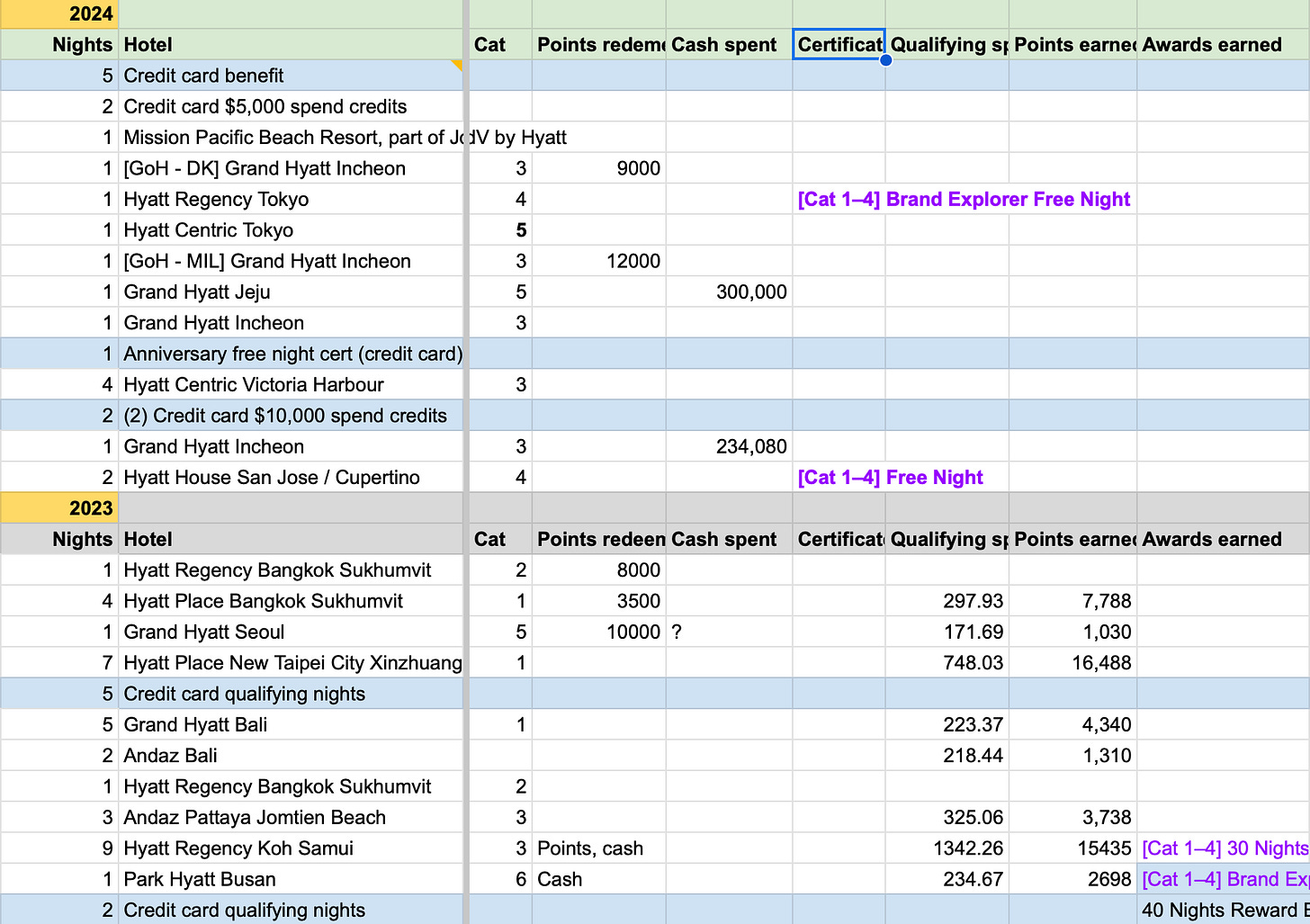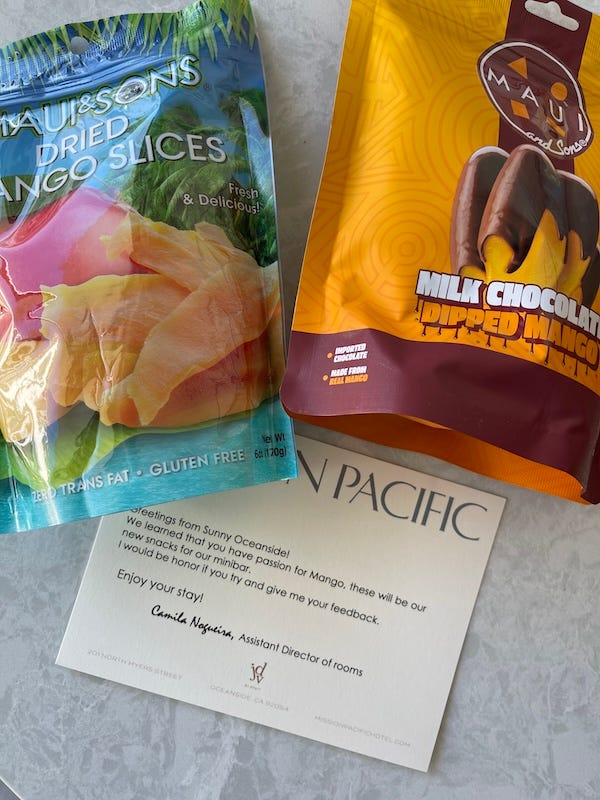What I learned from two years of being a fake Hyatt Globalist
I spent the greater part of 2023 scheming to obtain the highest elite status at Hyatt hotels. Here's what I learned about the perks of elite status, and what I would do differently next time.
A lot of you (okay, two) asked me to share my hotel travel hacks, so here it is—my long-awaited guide. Except, it’s not really a guide. It’s more like snippets of information I learned from the OG travel hacker: my sister, who also happens to be one of the smartest and cheapest people I know.
Without further ado… a post for those of us trying to reconcile our desire to have nice things with our natural tendency to be cheap!
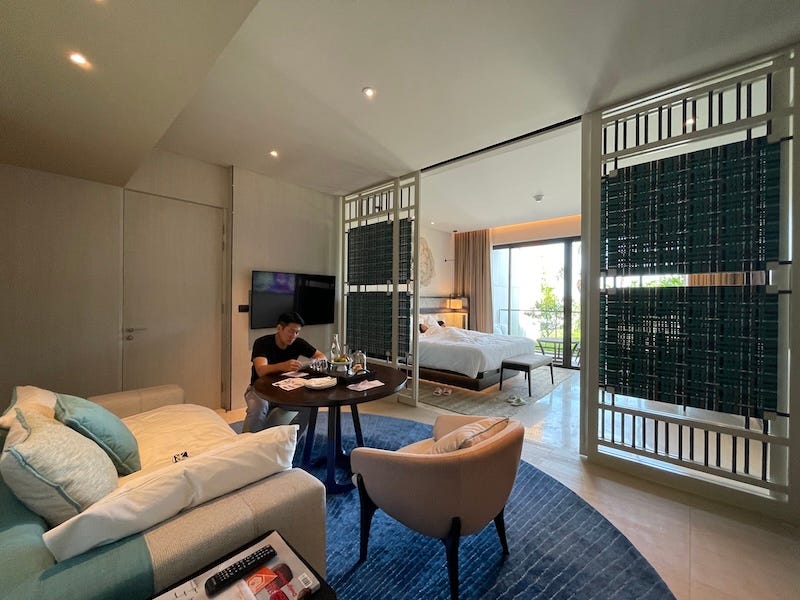
What is a Globalist?
A Hyatt Globalist is anyone who spends 60 or more nights at a Hyatt property per calendar year. This status comes with perks like complimentary club lounge access, breakfast, and suite upgrades (based on availability).
Globalist is Hyatt’s highest tier of elite status, and most Globalists are frequent business travelers. I, however, managed to achieve this status two years ago during a special “fast track” promotion. So while I’m a Globalist on paper, I’ve never stayed 60 nights at a Hyatt property, hence the “fake Globalist.”
Is it worth having Globalist status? They say usually if you have to ask, it’s probably not. And if you have to create a spreadsheet to track your stays and milestones like I did below, it’s definitely not. Regardless, here are some factors to consider.
When is it worth having Globalist status?
I do think there are some seasons in life when it’s truly useful to have elite status for travel. If you’re on the fence about pursuing elite status, consider this. Do you have any of the following life events planned in the next 12 to 24 months?
Lots of business travel.
Lots of traveling sport tournaments.
Lots of travel during a planned sabbatical or extensive parental leave.
Lots of travel during a long school break before kids graduate to older grades when it might be harder to travel or miss school or activities.
Lots of lap baby travel before baby turns two.
Lots of travel with kids aged 12 and under (and small enough to share your bed).
If you’d like to travel extensively and comfortably with a partner or a small family for more than two months in any given year, it may be worth having elite status. But in order to enjoy Globalist perks for a future trip, you should achieve elite status in the previous calendar year (more on that below).
If you're all about maximizing value, like I am, earning elite status becomes even more appealing when you're traveling with companions. But do some research first. Do the hotels you want to stay at allow children to stay in the room for free using existing beds? In the event that you can’t get an extra bed in the room, will your family of four fit on two twin beds? (Many hotels will allow two adults and two children in one room, but some hotels, particularly in Japan and Europe, don’t allow more than two to a room, including infants).
Do note that if you have a larger party (4+ members), you may want to reconsider Hyatt elite status. Not only will you have to book two rooms, but under Hyatt’s policy, Globalist benefits apply to just one—though some properties are more generous and flexible on this.

When is the best time to obtain Globalist status?
The best time to obtain Globalist is in the calendar year before the end of your big planned travels (or two calendar years, if your travel ends in February). Globalist status is granted once you achieve 60 nights, for the year in which it’s achieved PLUS the following calendar year PLUS through February of the following year. In that regard, you can have as little as 14 months OR as many as 24 months of Globalist status. If I’m putting in the effort, I’d rather have 24 months.
To put it simply, if you obtain Globalist by the end of this month (February 2025), you’ll have Globalist status until February 2027.
But if you obtain Globalist by the end of this year (December 2025), you’ll also have Globalist status until February 2027.
Having a Hyatt Chase credit card like I do can help you achieve elite status faster because just having the card automatically grants you 5 nights toward your 60 night count (so you only need to stay 55 nights at a Hyatt property to reach Globalist) + an additional 2 nights for every 5,000 USD spent. And of course, we can’t talk about travel without Chase Sapphire (referral link) which gives you 3 points for every dollar spent on travel (hotels, airfare, car rentals, etc.). These Chase points then are transferrable at a rate of 1:1 to your Hyatt account. Note: To qualify for these credit cards, you’ll need to qualify for American credit cards and a good credit score.
How to make the most of my Globalist status as a family
My Globalist stint coincided with our family’s sabbatical when DK quit his job. That enabled us to travel extensively as a family of four (we were able to take the kids out of school then because they were still young and not enrolled in much afterschool programs).
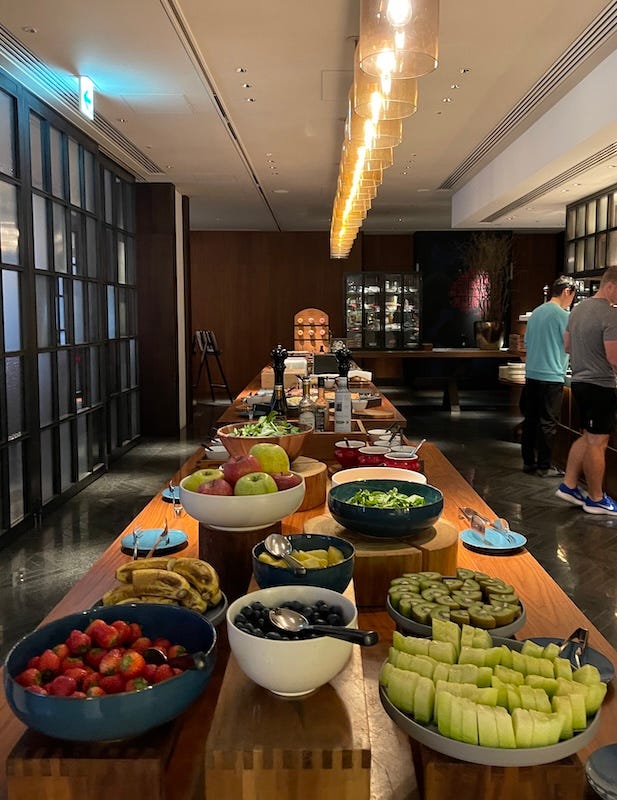
We always booked one room for two adults and two children, and in the occasional event that the hotel didn’t allow four to a room on the website, I emailed the property directly and asked them if it was possible (sometimes it was, like at Hyatt Centric Ginza Tokyo, and sometimes it wasn’t, like at Hyatt Regency Hong Kong, which doesn’t even allow for a second child in its Presidential Suite lol). Registering the entire family of four in our reservation was important because we always ate the complimentary breakfast (a Globalist perk), and there were many occasions when we had light dinners at the club lounge rather than at the hotel restaurants or nearby restaurants. (The local food at club lounges in Thailand are top notch!)

How to increase your chance of a suite upgrade
Since room/suite upgrades are based on availability, you’ll always have a better chance at an upgrade when you book in low season or weekdays. Also, I’m pretty sure most hotels prefer to give upgrades to paid guests as opposed to reward stays. Your chance of a low-peak weekday cash stay is pretty good. Peak season weekend point stay? Probably not that great.
In my experience, properties are pleased to discover that you’ve selected them when visiting a country/city for the first time. They also are delighted to receive returning guests. So whether it’s my first or second time at the property, I always leave a little message in the “Notes” section. It might be as simple as “This is our first time in Koh Samui, and we’re looking forward to staying at the Hyatt Regency!" You can also ask for suite upgrades (been there) or extra slippers for the kids (done that) here. Hotels always check the notes.
If you really need that upgrade, it never hurts to ask. Never take it for granted, but never hesitate to request nicely in an email. And always show your gratitude to the staff who made it possible, preferably by mentioning them by name in your customer experience feedback.
Why you should always give detailed feedback and reviews after a hotel stay
Hotel brands always appreciate customer experience feedback and follow up proactively to both positive and especially negative ones. Sometimes the messages are canned, and sometimes they’re actually from a person (usually in response to critical feedback). Some properties and hotels reflect feedback and other guest notes on your file for future stays (so don’t be a jerk or a sloth).
We stayed in many Hyatt properties in Thailand in 2024, and I, as a professional mango taster, always left comments on the ripeness and flavor of their mangoes at breakfast. Later that year, when I stayed at a Hyatt resort in California, the assistant director of rooms left special mango snacks as welcome gifts in my room because she was aware of my obsession with mangos. (Note: This isn't that common—for me, this was the first and last time where things came full circle for me as a Hyatt Globalist. I’ve heard it happens regularly for real Globalists/big spenders.)
How I would plan my next Hyatt Globalist attempt
I know I want to take the kids to Europe before they turn 14 to take advantage of the free or discounted youth rate for most European rail companies and museums. So whether we go during their summer or winter break (or both, DK and God willing), I would start accumulating hotel stay nights in January the year before we take our trip.
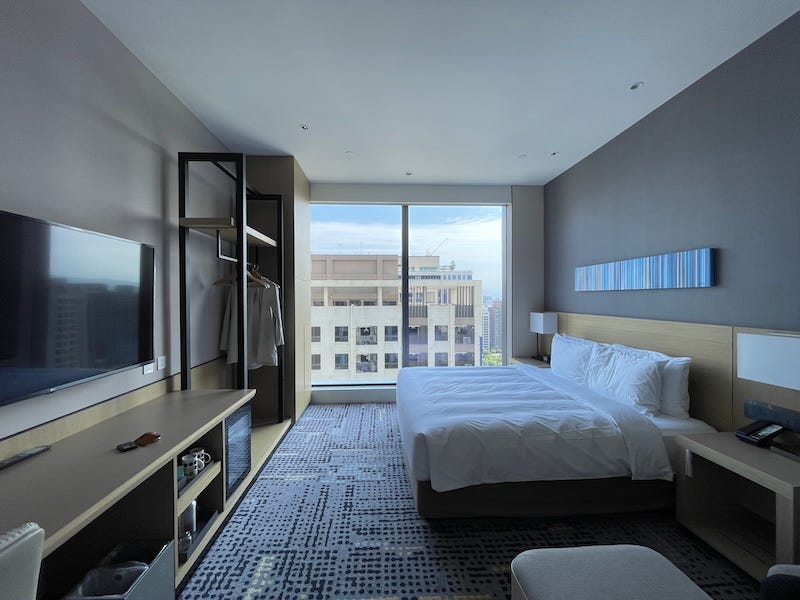
Staying 60 (55) nights per year at a hotel is a feat that’s going to take some careful planning. So in order to maximize an expensive Europe trip, I would probably plan a few weeks-long trips at Category 1 Hyatt hotels around Asia in the calendar year before our big trip. Category 1 hotels are usually basic low-end hotels ranging from 3,500 points (off-peak) to 6,5000 (peak) points.
Category 1 to 2 Hyatt hotels in Asia (excluding China and India) are usually around 100,000 to 150,000 KRW. While that rate isn’t terribly high, some Category 1 properties can be more than 250,000 KRW in high-cost cities like Osaka (Edit: Hyatt just increased this particular property I had in mind to Category 2, so nevermind). For those properties, I would use Hyatt/Chase points to book some off-peak rooms, which start at 3,500 points. I would also use up the Free Night Awards (reward stays at Category 1-4 hotels) from the Hyatt credit card and Free Night Awards earned as a result of certain milestones (30 nights) or visiting all the different brands in the Hyatt portfolio.
My plans for hotel stays in the future
Travel isn’t high on our agenda for 2025. Both DK and I are busier with more projects. We also have less opportunities to travel as a family as the kids grow up and become busier.
From this year and onwards, I’ve found Accor, another international hotel chain, to be a better fit for my needs. It has more budget options for quick solo travel, a better footprint in Asia, and also offers a Woori credit card (Korean). Although its loyalty program and redemption pales in comparison to Hyatt, it’s a better fit for me at the moment as I need more practical, central places in cities I frequent for work and friends like Seoul and Hong Kong.
Bottom line: Just how much are you willing to spend to travel “for free”?
On our bookshelf, there’s a children’s economics book titled 1+1이 공짜가 아니라고? (“Buy One Get One Free Isn’t Really Free?”), which feels like the perfect note to end on.
We all know that nothing in life is truly free. Yet, even the savviest of us (🙋🏻♀️) can get caught up in the thrill of a great deal—especially when it comes to hotel reward redemptions.
Yes, it’s possible to book luxury hotel stays without spending cash, but the process isn’t effortless. If you’ve invested in earning points and status, spent hours researching the best redemptions, and even have to beg the front desk to make it happen—was it really free? Just something for all of us to ponder as we start plotting the next great trip.



